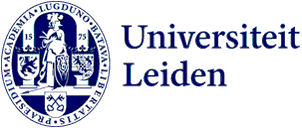
Professor by special appointment Mariken Teeuwen: ‘There are so many new possibilities in research on medieval manuscripts’
Mariken Teeuwen started at the Institute for History as a professor by special appointment of Script Culture of the Middle Ages on 1 March. ‘I’m looking forward to doing research together with students.’
Professorship is not new to Teeuwen. In addition to her job as a senior researcher at the Huygens Institute, she was a professor by special appointment at Utrecht University. ‘During my time at Utrecht, I found it really valuable to involve students in my research. When I couldn’t extend my time any further there, Leiden University was the obvious next step, because it has the largest and (in my opinion) the best collection of manuscripts in the Netherlands.’
New insights from the margins
Teeuwen’s goal is to make sure that such sources are available at all times and in all places. ‘When I was still a student, you could only see these scriptures with a recommendation letter from a professor. Nowadays, you can go online and access thousands of manuscripts from all kinds of libraries via your own computer screen. This opens up the opportunity to explore numerous new research avenues.’
Digitisation made it possible for Teeuwen to conduct research into annotations: comments and notes written in the margins that do not usually get included in the printed versions. ‘The generally accepted narrative is that the Carolingian period (from the mid-eighth to the tenth century, ed.) was mainly a time of consolidation. It was not until the twelfth and thirteenth centuries that scholars really began to think for themselves, because that’s when texts with new ideas started to be produced. Our conclusion, however, was that many of these new ideas were already present in the annotations of early medieval manuscripts. It just largely happened in the margins.’
Further digitisation
In the coming years, Teeuwen and her colleagues at the Huygens Institute want to take the digitisation of medieval manuscripts in the Netherlands a step further to make more of this kind of research possible. ‘The Netherlands is lagging behind in terms of digitisation. That’s why we’re now working on a prototype for a virtual library in which anyone who’s interested can find medieval manuscripts from Dutch collections. It will consist on the one hand of a publication of photographs of the medieval manuscripts and on the other of a publication of metadata about the manuscripts, combined with a search interface where you can filter all kinds of aspects of the manuscripts. We’re currently working together with Tresoar in Leeuwarden, the Huis van het Boek in The Hague and the Athenaeum Library in Deventer. If that goes well, hopefully more collections can be included in future projects.’
Students really liven up my work.
Not only do Teeuwen’s colleagues play a role in this research. She encourages her new students at Leiden University to play a role in the project as well. ‘It’s always fantastic to look at manuscripts with students. They pick out different things than I do. That really livens up my work. If you are too deeply into your own research, it gets harder and harder to talk about it. At the same time, by now I have gained a lot of experience in terms of digital innovation. The digital skills that you build up are increasingly needed for future jobs, especially in academia. That seems to me to be a win-win situation.’
De leerstoel Schriftcultuur in de middeleeuwen is ingesteld door de KNAW. Teeuwen combineert de leerstoel met haar werkzaamheden aan het Huygens Instituut.
